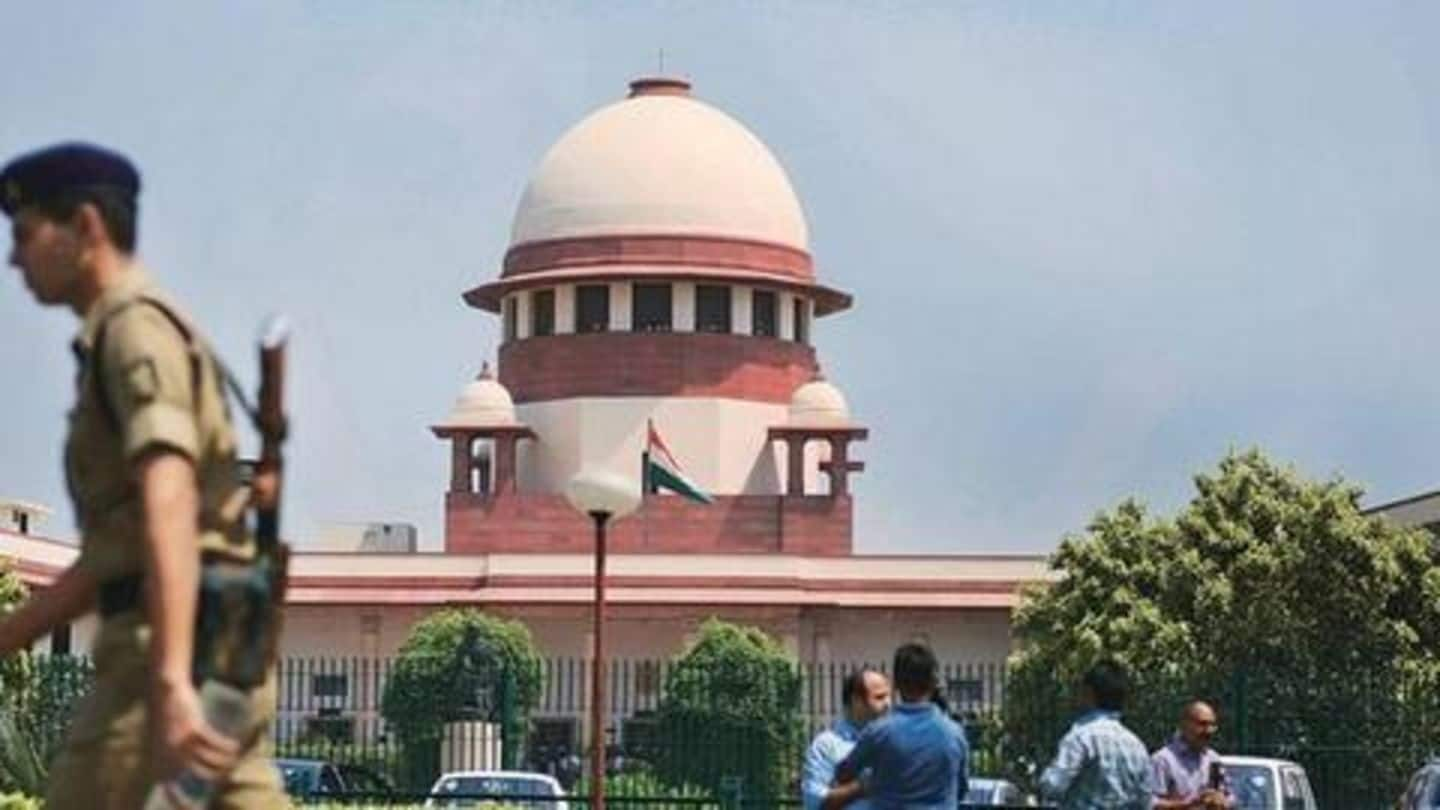
SC's 5-judge Constitution Bench to hear #AyodhyaCase on 10 January
What's the story
Chief Justice of India, Ranjan Gogoi, has set up a five-judge Constitution Bench to hear the Ayodhya land dispute case from 10 January.
The bench led by CJI Gogoi consists of four other judges - Justice SA Bobde, Justice NV Ramana, Justice UU Lalit, and Justice DY Chandrachud - the four probable future CJIs in the line of seniority.
Here's more.
Twitter Post
Five-judge Constitution Bench of the apex court
Five-judge bench led by Chief Justice of India Ranjan Gogoi will hear the Ayodhya case. Other four judges are Justice SA Bobde, Justice NV Ramana, Justice UU Lalit and Justice DY Chandrachud. https://t.co/MeIQq64EpJ
— ANI (@ANI) January 8, 2019
Details
Bench to fix date for hearing in the case
On 10 January, the CJI-led five-judge Constitution Bench will decide on a date and pass an order for fixing the date of hearing in the Ayodhya temple-mosque dispute case.
A bench of SC comprising CJI Gogoi and Justice SK Kaul, earlier on 4 January, said that an appropriate bench will pass the further order on hearing the land dispute case on 10 January.
Constitution Bench
SC earlier rejected to refer 1994 judgment to Constitution Bench
Notably, on 27 September 2018, the apex court had refused to refer the observations in its 1994 judgment to the larger Constitution Bench for reconsideration.
The Supreme Court, in its 1994 judgment, had observed that "a mosque is not an essential part of the practice of the religion of Islam and namaz can be offered anywhere, even in the open."
Pleas
14 pleas filed against 2010 Allahabad HC verdict
As many as 14 pleas were filed in the Supreme Court against the Allahabad High Court's 2010 verdict in four civil suits in the Ayodhya matter.
A notice uploaded on the apex court's website said that these petitions in the Ayodhya land dispute case will be listed on 10 January at 10:30 am in the Chief Justice's court before the five-judge Constitution Bench.
2010 verdict
The 2010 Allahabad High Court judgment
The Allahabad High Court in 2010 had ruled that the disputed 2.77-acre land in Ayodhya be divided equally among the three parties: Ram Lalla (represented by Hindu Maha Sabha, for the Ram temple construction), the Sunni Waqf Board, and Nirmohi Akhara.
However, all the stakeholders had rejected this verdict by the Allahabad HC and appealed in the Supreme Court.
About
A little about the Babri Masjid-Ram Janmabhoomi dispute
On 6 December 1992, thousands of right-wing activists razed down the Babri Masjid, claiming that it was built on a temple; this temple had special significance as it was considered the birthplace of Lord Ram.
Since then, the 16th-century site has been disputed.
After the Babri Masjid demolition, the country had witnessed Hindu-Muslim riots that killed about 2,000 people.